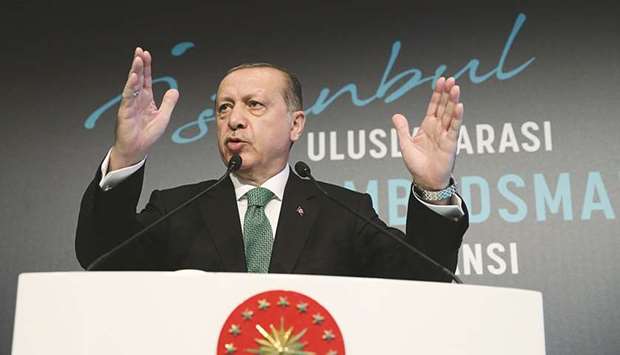Turkey can choose to “close the valves” on oil exports from Iraq’s Kurdish region through the Turkish port of Ceyhan, President Recep Tayyip Erdogan warned as Kurds voted yesterday in a referendum on independence from Iraq.
The landlocked Kurdish enclave in northern Iraq can ship as much as 700,000 bpd through the pipeline to Ceyhan on the Mediterranean. The Turkish president’s comments served as a reminder that Iraq’s semi-autonomous Kurdistan Regional Government depends on good relations with neighbouring Turkey for most of their oil sales and revenue. Turkey, which has its own restive Kurdish minority, opposes the Kurdish independence referendum in Iraq.
“Let’s see where the regional government will flow its oil, through which channels and where it will sell it,” Erdogan said in Istanbul yesterday. Turkey, which is both a customer and a conduit for Kurdish oil, is ready to intervene as it did in Syria, he said, referring to a cross-border military operation last year. “We may arrive one night, suddenly.”
Oil pumped at fields controlled by the KRG and the central Iraqi government’s North Oil Co was flowing normally through the export pipeline yesterday, according to two people familiar with the matter, asking not to be identified because the information is confidential.
Iraq’s Kurdish enclave could hold 45bn barrels of crude reserves, according to KRG data. The region pumped about 544,600 barrels of oil a day in 2016 and is expected to boost output to 602,000 barrels this year, consultant Rystad Energy said in April. Last year’s production represented about 12% of the supply from Iraq, the second-biggest producer in the Organisation of Petroleum Exporting Countries.
Turkey and Iran, which also has a population of Kurds, have been among the most outspoken opponents of the referendum and were among the first to act. Iran’s Tasnim news agency reported that Iranian airspace bordering the Kurdish region had been closed at the request of Iraq’s government, and that the Iranian military was conducting exercises in frontier provinces.
The vote was “laying the ground for hot conflict,” Turkey’s Prime Minister Binali Yildirim said yesterday.

Erdogan: Stern message.
